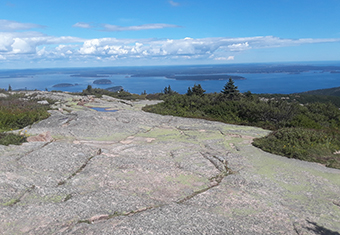

Abstract
If you had $1000 to invest in the stock market and wanted to ensure the short- and long-term success of that investment, would you: (1) Invest in a stock that is doing really well now, in hopes it will continue to do well in the future? (2) Try to predict which stock will do best in the future despite uncertainty? Or, (3) diversify your portfolio to hedge your bets? Conservation agencies trying to manage species under climate change face similar decisions. When restoring or creating new populations now, is it best to diversify the genetic portfolio of individuals in the population to help the population persist into the future? If so, what mixture of genotypes is best?
My research will help answer these questions by providing the first comprehensive assessment of commonly recommended, but currently untested, genetic management strategies. First, I will use simulations and a cutting-edge model-system approach to evaluate the benefits of 6 alternative genetic-management strategies for a suite of common management objectives. Second, I will gather practitioners with multiple perspectives to: (1) survey attitudes towards genetic management, (2) discuss the potential benefits of different genetic-management strategies, and (3) choose an optimal genetic-management strategy based on potential costs and benefits for 3 diverse case studies: seagrass restoration, managed salt-marsh migration, and alpine-plant restoration. My research will help determine if genetic management is a feasible and beneficial tool to improve long-term outcomes in these systems or a costly distraction. Moreover, by working across these diverse ecosystems and with a variety of practitioners, my research will offer a nuanced evaluation of genetic management that is relevant to practitioners worldwide.
